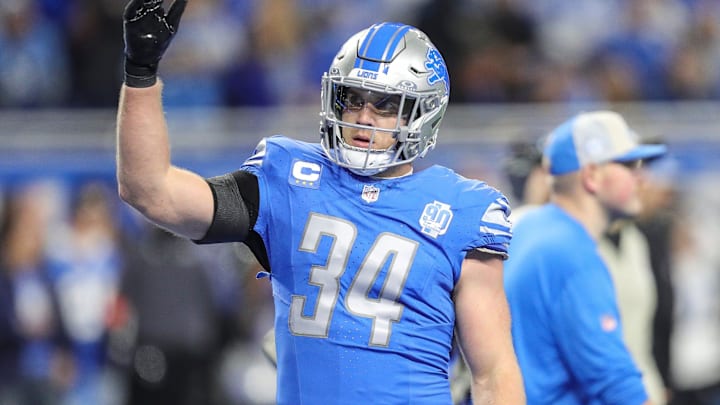The day before the draft, news came that the Detroit Lions signed Amon-Ra St. Brown to a contract that would make him the highest-paid wide receiver in the NFL by annual average. The actual numbers are a little different than that surface $30 million per year, and St. Brown's status as the highest-paid receiver lasted like a day before the Eagles gave A.J. Brown more per year.
What is absolute is St. Brown will enter a new tax bracket with his greatly increased income. Most fans are aware of what's called the "jock tax". Players get taxed according to what state they play games in, which stands to have more impact on NFL players because they play fewer games. It's also safe to say teams in states that have no state income tax (Texas, Florida) have some advantage in signing free agents.
This is a calculation based on the surface detail of St. Brown's contract extension, which we know isn't what he's guaranteed to earn over the course of it. He won't top $30 million in cash earnings until 2028, the final year of the extension. Still, the numbers are striking, in terms of taxes.
Amon-Ra St. Brown just became the highest-paid WR (4 years, $120M).
— Andrew Petcash (@AndrewPetcash) April 24, 2024
Here's how much he will actually earn: 😲
$30M: Salary
-
$11.1M: Federal Tax
$900k: Agent Fee
$894k: Jock Tax
$703k: FICA/Medicare
$637k: Michigan Tax
=
$15.7M: Net Income pic.twitter.com/zSYUEQDNbR
Obviously, no one is crying for St. Brown. He's not going to struggle to make ends meet, and he surely wasn't struggling even when was on his rookie deal and lost a big chunk of money due to a ridiculous fine last season.
Alex Anzalone responds to post about tax implications for Amon-Ra St. Brown
A sports writer making whatever. A professional athlete making millions. A fireman, a doctor, an electrician, etc. We all complain about taxes. But it's one of the core, unavoidable realities of life.
Alex Anzalone got a nice multi-year deal from the Lions last offseason, which landed him in a different tax bracket than he had been in.
An aggregator shared the details of the previous post about St. Brown's new tax implications. Anzalone response was candid and spot-on.
The difference between athletes and business owners. Business owners can get away without paying through write offs, claims of losses, etc. We’re just typical W2 workers and can’t write off anything worthwhile. Can’t say we don’t pay our fair share! https://t.co/gFD2UgxN3T
— Alex Anzalone (@AlexAnzalone34) May 2, 2024
Anzalone was not asking for sympathy about the taxes he and pro athletes pay based on their high incomes, he just pointed out the reality. Athletes can't avoid said obligations with expenses, reported losses, etc., like other W2 employees, freelancers who get 1099s, etc. It's just bigger numbers when you're dealing with bigger money.
